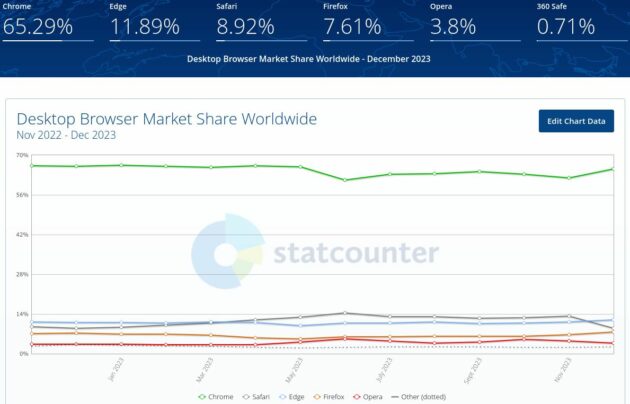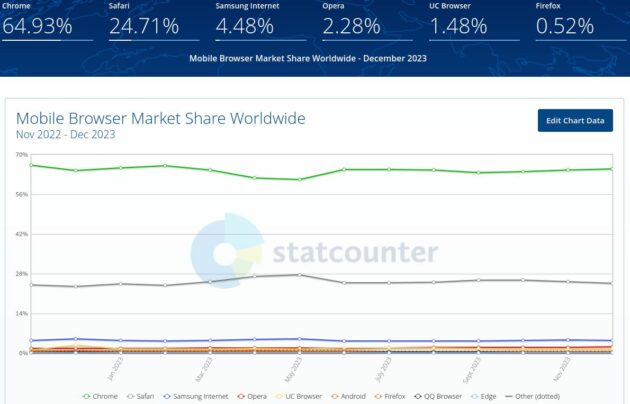How did 2023 end in terms of market shares within the most consumed software? Before diving into the data, there are three things to highlight: Windows 10 continues to clearly dominate Windows 11Mozilla Firefox continues without recovery, while Google Chrome crushes the competition and Linux seems to have consolidated its share around 3%. As usual, every time we create an article of this type, we take the data provided by Statcounter.
The first thing that stands out is that even two years after the official launch, the share of Windows 11 still does not eclipse that of its predecessor. Without going into depth, as it is not the goal of this article, there are two big factors that keep Windows 10 in a very good state: first, it is the high requirements for the level of features of Windows 11, if we stick to the official channels, which means that it it can run only a few computers in homes and businesses. Second, it’s likely that the many performance regressions found have made many reluctant to upgrade. Windows 10 got 67.46% of Microsoft’s own pie in December 2023, while Windows 11 got 26.52%.
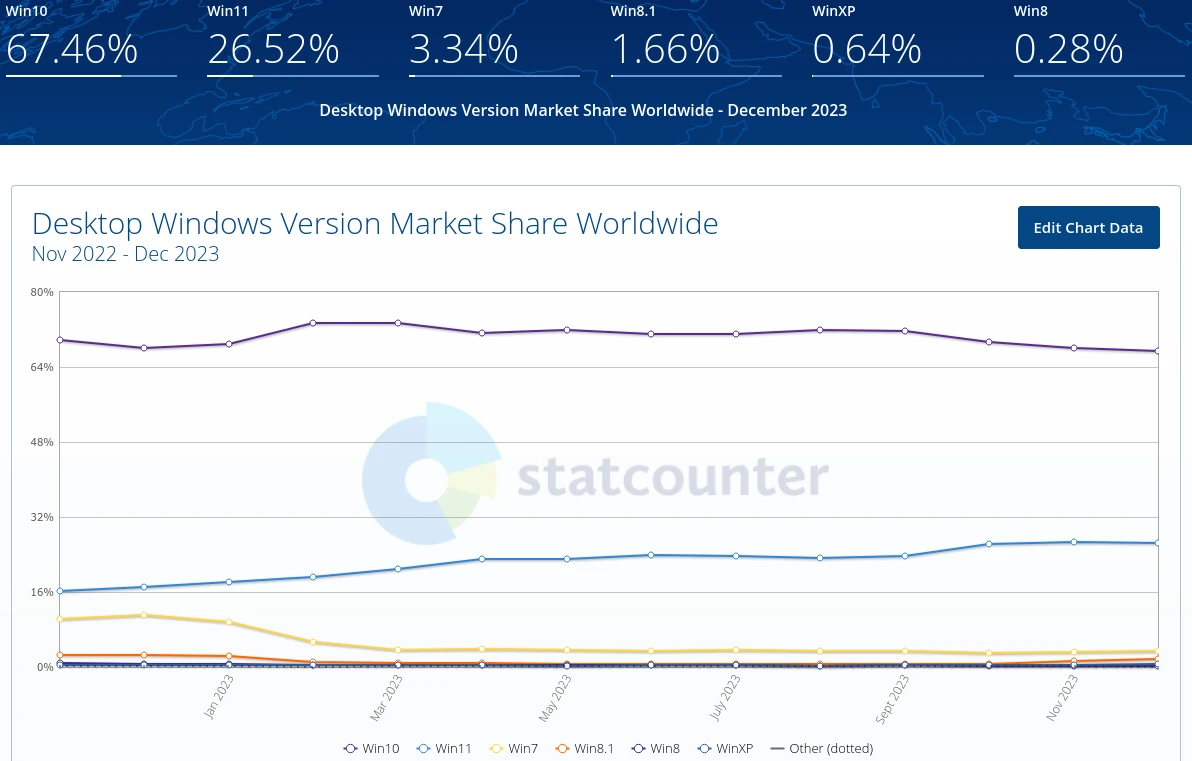
Continuing with operating systems, but now focusing on the desktop sector as a whole, macOS was able to consolidate its share above 16%, which is not bad if we see the high prices that Apple computers usually have. It is also noteworthy that Linux seems to have finally consolidated a share of 3% or more, closing the year with 3.82% and stayed above its direct rival in that sense, ChromeOS, which captured 2.42%.
Another point to note about desktop operating systems is that Windows recovered in the second half of 2023, reaching 72.79% in December. We remember that Microsoft’s system reached a share of 63% last May, although it looked more like a consequence of the use or abuse of VPN services, because the drop recorded was too sharp.
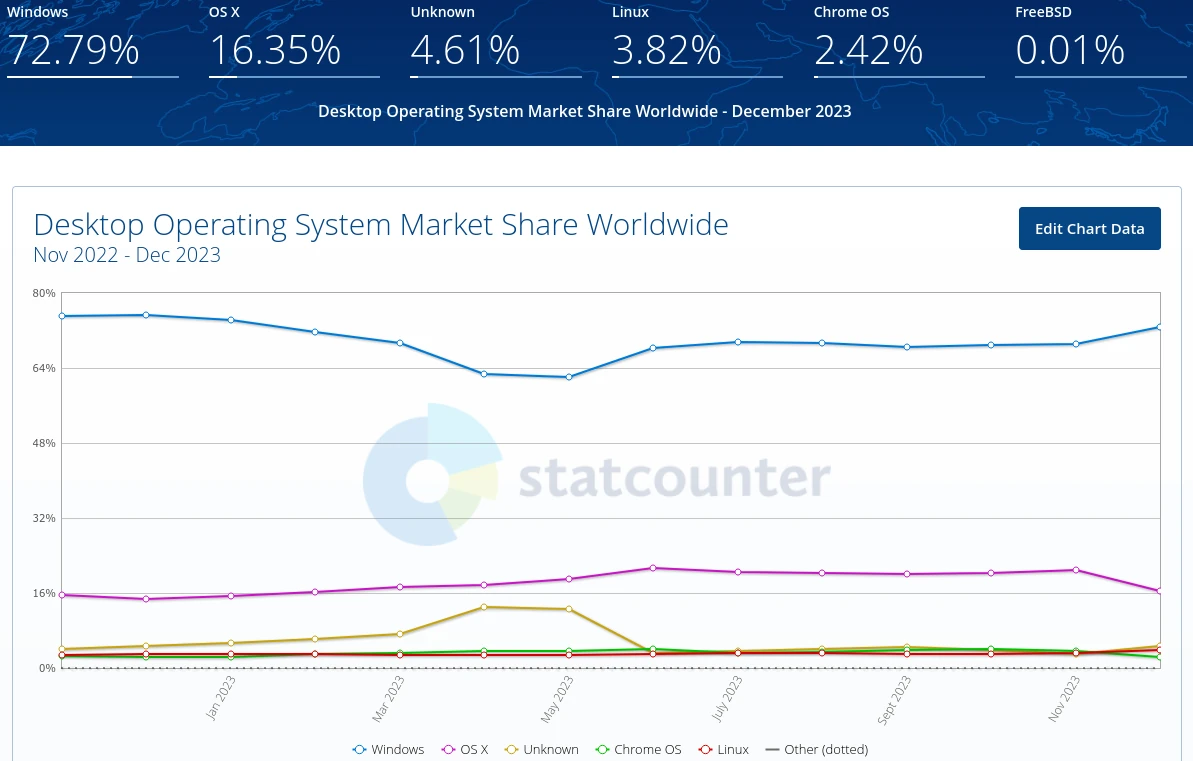
When it comes to mobile operating systems, panorama is usual, with Android clearly dominated in December 2023 with a share of 70.48% and iOS as the main alternative with 28.8%. The dominance of Google’s product is mainly due to developing and developed countries in which the population does not excel in its purchasing power, as in countries such as the United States of America, Denmark, Sweden and Switzerland, iOS is seen to be the dominant system.
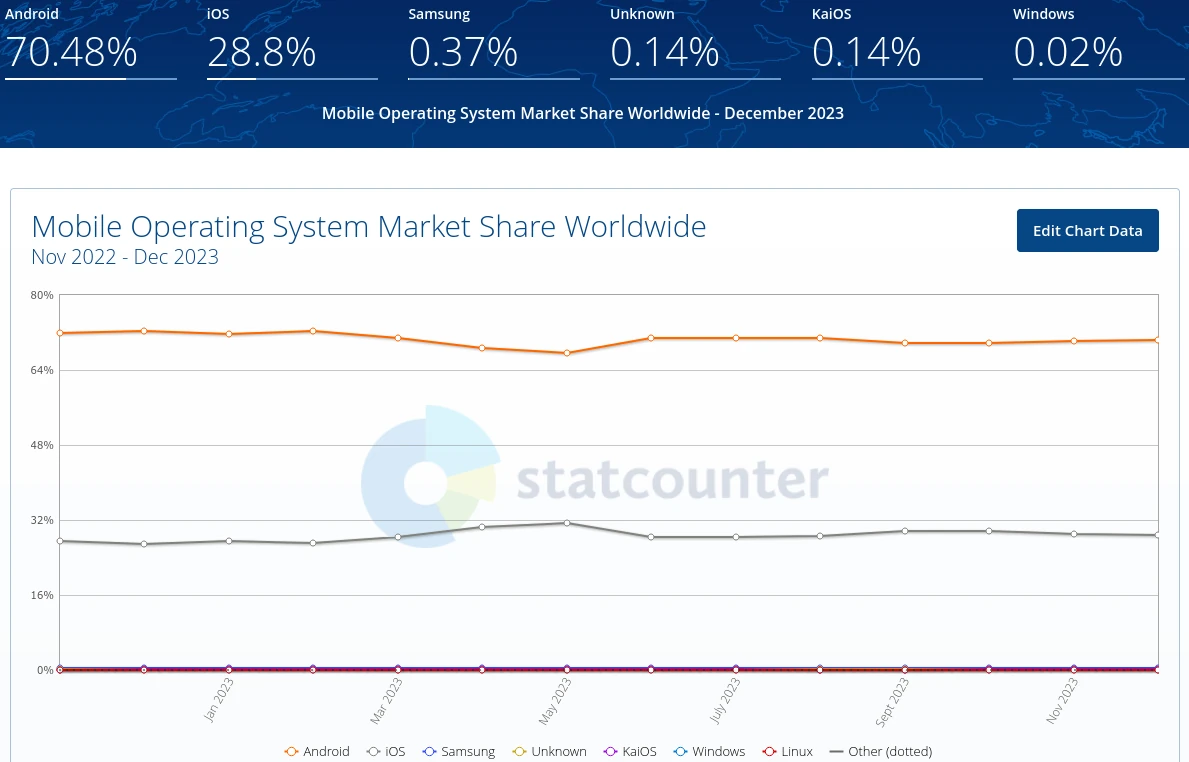
Less interesting is the situation around web browsers, a sector in which Google Chrome It has been gaining ground on both mobile devices and desktops for years. IN mobile phones, its share in December 2023 was 64.93% compared to 24.71% for Safari, 4.48% for Samsung Browser and 2.28% for Opera, while on computer it was 65.29% compared to 11.89% for Microsoft Edge, 8.92% for Safari (which only officially supports macOS), 7.61% for Mozilla Firefox, and 3.8% for Opera.
A combination of mobile and desktop systems, possibly peaking in 2023, is a bad situation for Firefox, which was only 3.36% of the total. Aside from its steady decline on the desktop, which seems to have slowed recently, the most concerning thing about Mozilla is its dire situation on mobile, where it only has a 0.5% share. It’s not just Google’s powerful propaganda machine that has affected Chrome usage, but Mozilla’s poor technological direction over the past decade. The fundamentals needed a lot of awakening to take on Chromium at a performance level, and even more so on mobile phones.
The Linux desktop is currently the only place where Firefox competes technologically with Chromium (and derivatives like Chrome, Edge, Brave, Vivaldi and Opera) because it showed better adaptability to technologies like Wayland, a graphics protocol that promises to be a successor to Xorg, and universal package formats with Flatpak and Snap at the same time .head.
In short, Windows 10, Android, and Google Chrome closed 2023 as the undisputed kings of home computing, and it doesn’t look like the situation will radically reverse during 2024, unless artificial intelligence quickly ushers in a new paradigm.











